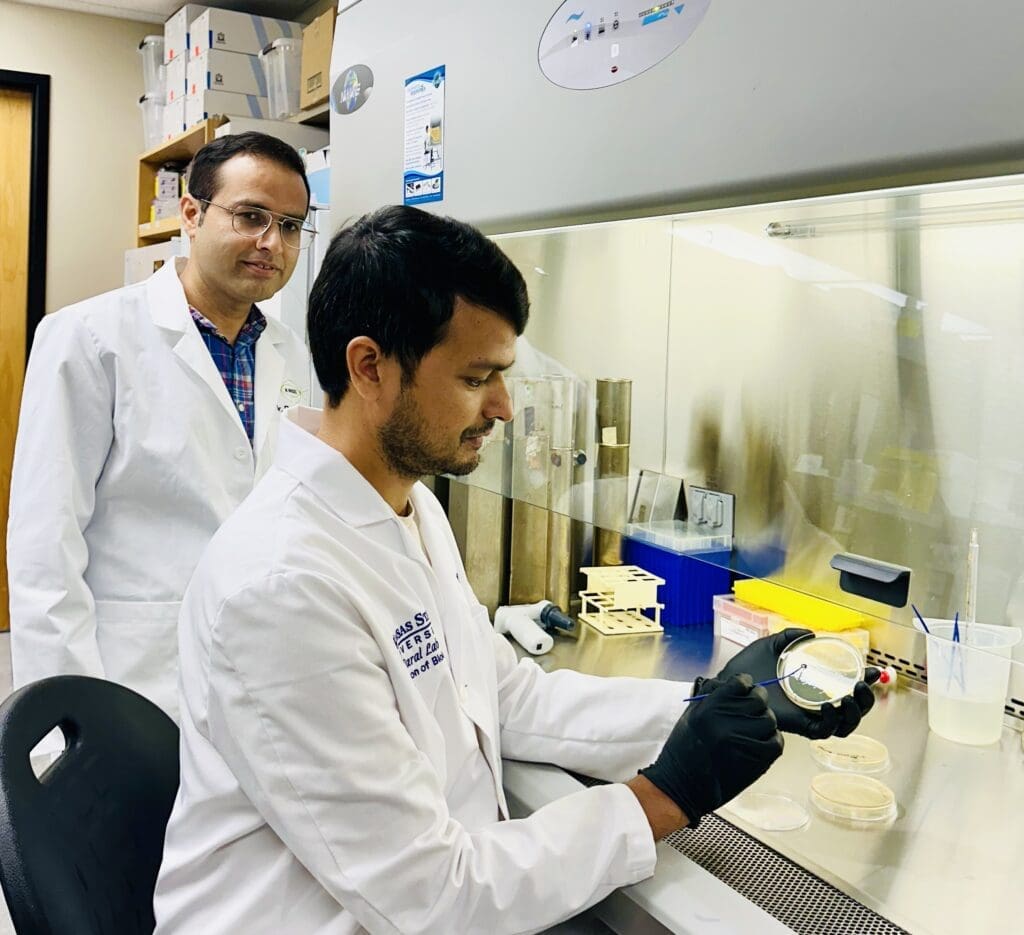Bacterial pneumonia and sepsis are major causes of hospitalization and death. Researchers from Kansas State University’s Division of Biology have found that problems with the body’s immune response to bacterial infections may contribute to these issues.
The research team is working with the University of Kansas to screen small molecules for potential inhibitors of nociceptor signaling, aiming to find new therapeutic options for Gram-negative pneumonia and sepsis.
Pankaj Baral, assistant professor of biology, and Prabhu Raj Joshi, doctoral student in microbiology, are researching how the nervous and immune systems interact and affect the body’s fight against a type of dangerous bacteria called carbapenem-resistant Klebsiella pneumoniae (CRKP).
Their study, published in Science Advances, found that pain-sensing nerves in the lungs might actually make infections worse instead of helping. CRKP is a serious problem in hospitals and can lead to severe pneumonia and sepsis.
Baral and Joshi’s work suggests that targeting these pain nerves could lead to new treatments for these infections. They are working with researchers at the University of Kansas to test many small molecules and look for the best ones to block pain-sensing nerves, which could help treat Gram-negative pneumonia and sepsis.













